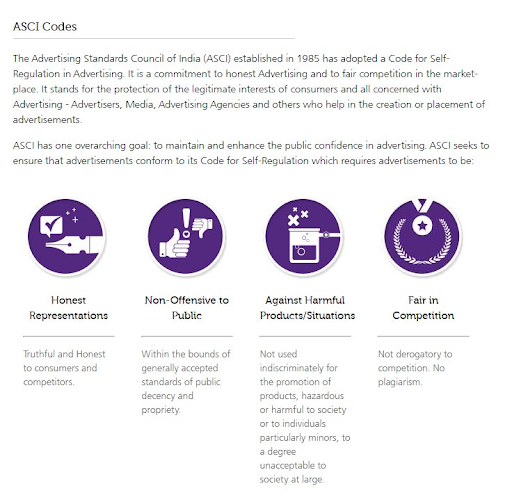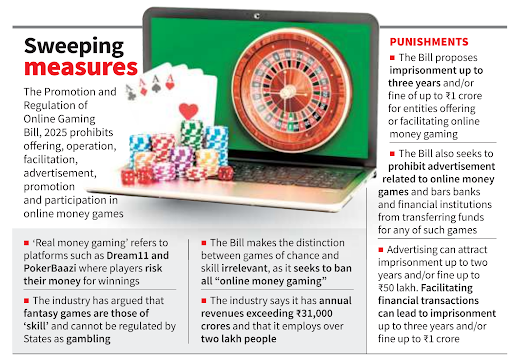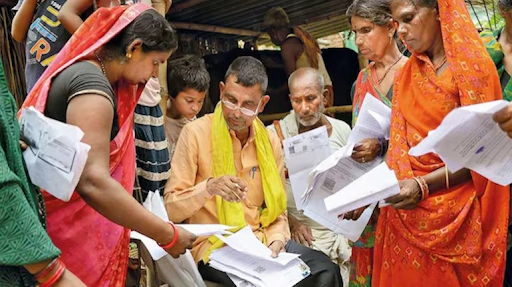



The Supreme Court seeks the Centre’s response to a PIL on celebrity-endorsed online gambling, citing addiction, financial ruin, and suicides, while urging a national ban, tighter financial controls, and equal liability for endorsers under the Consumer Protection Act.

Copyright infringement not intended
Picture Courtesy: NEWSONAIR
India can regulate the complex online gaming landscape by adopting strategies that promote innovation while safeguarding citizens from the detrimental effects of unregulated online gambling.
|
Read all about: Online Gaming Regulation in India l Regulation Of Online Real Money Gaming in India |
Online gambling, or iGaming, is the act of wagering money or other valuables on games of chance or skill over the internet. It has expanded due to internet penetration and mobile technology.
|
|
Game of Skill |
Game of Chance |
|
Dominant Factor |
The outcome is determined largely by the player's talent, knowledge, strategy, and expertise. |
The outcome is based mainly on random factors, such as the roll of a dice, the spin of a wheel, or the draw of a card. |
|
Player Control |
Players have a high degree of control over the result, and can improve their performance with practice and experience. |
Players have very little to no control over the outcome. |
In 2024, the online gaming sector expanded to 488 million gamers, projected to reach 517 million by 2025. (Source: animationxpress)
The market revenue stood at an estimated $3.7 billion in 2024 and is forecast to surge to $9.1 billion by 2029, with the real money gaming segment accounting for around 86% market share. (Source: Game Developers Conference)
Encouraging addiction
IIM Rohtak study found Celebrity endorsements increase the likelihood of young people trying online gambling, a key driver for addiction.
Hiding risk
Celebrity endorsements normalize gambling, masking its financial and psychological dangers by showcasing wins and luxury while omitting losses.
Exploiting trust
Young people trust influencer-promoted products due to perceived connection, which is harmful when promoting activities like gambling, often illegal or unregulated.
Undermining warnings
An IIM Rohtak study found that celebrity-delivered statutory warnings about gambling are less effective than non-celebrity warnings, as young people prioritize the endorsement over the risk
Financial Distress and Addiction
Online betting, gambling, and fantasy sports fuel financial distress, severe addiction, and illegal transactions. In Telangana, over 1,000 suicides are linked to losses on betting apps.
Black Money and Crime
Law enforcement, including the Enforcement Directorate (ED) and cybercrime units, has uncovered illegal betting syndicates involved in money laundering, with ties to politicians, celebrities, and criminal organizations.
Tax Evasion and Offshore Platforms
A 28% GST on gaming deposits and 30% Tax Deducted at Source (TDS) on winnings over ₹10,000 has driven users to illegal offshore platforms, causing a 30% surge in illegal online gambling. Recently the 56th GST Council raised effective tax to 40%.
The Directorate General of GST Intelligence (DGGI) has detected tax evasion worth ₹81,875 crore involving online gaming firms in FY 24. (Source: business-standard)
Manipulative Algorithms
Officials and experts, including the IT Minister, claim many gaming apps use manipulative algorithms, leading to frequent player losses and increased financial harm.
The Promotion and Regulation of Online Gaming Act 2025
Gambling-related online money games (RMG) are banned. Offering, promoting, or financing these games is criminalized, with penalties up to two years in prison and ₹50 lakh fines for advertising.

Advertising Standards Council of India (ASCI) Guidelines
ASCI's guidelines for "Online Gaming for Real Money Winnings" prohibit depicting minors, portraying gaming as an income opportunity, or suggesting success is linked to gaming.
Advertisements must carry a disclaimer: "This game involves an element of financial risk and may be addictive. Please play responsibly and at your own risk."

The Supreme Court differentiates games of skill (protected under Article 19(1)(g)) from games of chance (prohibited gambling) using a "predominance test."
Constitutional Protection
The Supreme Court, in judgments such as R.M.D. Chamarbaugwala vs Union of India (1957) and Dr. K.R. Lakshmanan vs State of Tamil Nadu (1996), recognized that games predominantly based on skill constitute a legitimate business activity, protected under Article 19(1)(g) of the Constitution, which guarantees the right to practice any profession or carry on any occupation, trade, or business.
"Dominant Element" Test
The Court laid down the "dominant element" test to determine whether skill or chance influences a game's outcome. This involves assessing if factors like superior knowledge, training, experience, or attention of a player materially impact the game's result.
Taxation Ambiguity
Despite this distinction, the Centre contends that once money is involved, even a skill-based game "metamorphoses" into a game of chance for GST applicability. The Supreme Court is reviewing petitions challenging the uniform 28% GST on all online games, irrespective of the skill-chance classification.
Fragmented Legal Landscape
Gambling being a state subject leads to inconsistent laws across India. What is legal in one state may be illegal in another, creating a regulatory labyrinth for operators and users.
Technology Outpacing Law
The rapid evolution of online gaming and betting platforms, often hosted on international servers, constantly outpaces legislative efforts, making effective enforcement difficult.
"Skill vs Chance" Ambiguity
Despite judicial pronouncements, the practical application of the 'dominant element' test remains contentious, with operators often exploiting loopholes by classifying betting platforms as 'games of skill'.
Enforcement Against Offshore Entities
It is challenging to regulate and take action against offshore betting and gambling companies that operate and advertise illegally in India without any accountability.
Social Media and Influencer Marketing
The pervasive reach of social media platforms and the persuasive power of celebrity endorsements make it difficult to curb the promotion of illegal gambling, especially among youth.
Revenue Leakage and Illicit Activities
High taxation rates have pushed users towards unregulated offshore platforms, leading to revenue loss for the government and an increase in black money generation and circulation
Comprehensive Central Legislation
The Promotion and Regulation of Online Gaming Act, 2025, is a step forward, but a uniform central law for online gaming and betting would be more effective.
Strengthening Regulatory Bodies
Empowering and adequately resourcing regulatory bodies like MeitY and ASCI to monitor digital content, identify illegal advertisements, and impose stringent penalties on non-compliant platforms and endorsers.
Responsible Advertising & Endorsement Guidelines
Mandatory due diligence by celebrities on endorsed products and greater accountability for misleading claims are essential for stronger endorsement protocols.
Public Awareness and Digital Literacy
Educate youth and parents on online gambling risks and misleading endorsements. Promote digital literacy to distinguish legitimate gaming from exploitative gambling.
Technological Solutions for Enforcement
Improved enforcement can be achieved through real-time online platform monitoring, AI detection of illegal betting, and enhanced cybersecurity to block offshore gambling sites.
International Cooperation
International cooperation is essential to combat offshore operators and trace illegal financial transactions on global online platforms, ensuring that jurisdictional borders do not become safe havens for unlawful activities.
The Supreme Court's action on celebrity-endorsed online gambling highlights the challenge of balancing digital economic growth with social protection in India. Collaborative efforts by all stakeholders are essential to create a responsible and safe online gaming environment for adolescents.
Source: NEWSONAIR
|
PRACTICE QUESTION Q. Critically analyze the socio-economic impacts of celebrity endorsements on online gambling. 150 words |
Online gaming uses computer networks, usually the internet, for real-time interaction and competition with players worldwide. It differs from offline games by offering a range of experiences from cooperative and competitive games to casual browser-based activities.
The 2025 Promotion and Regulation of Online Gaming Act bans all online real money games (RMGs), eliminating the previous legal distinction between "games of skill" and "games of chance" for money-based games. This new legislation resolves the former "gray area" of online gambling's legal status, which previously varied by state and court interpretation.
eSports, or electronic sports, is a form of competitive online gaming where professional players and teams compete for prizes. It has grown into a major industry with large audiences, sponsorships, and significant prize pools.




© 2026 iasgyan. All right reserved